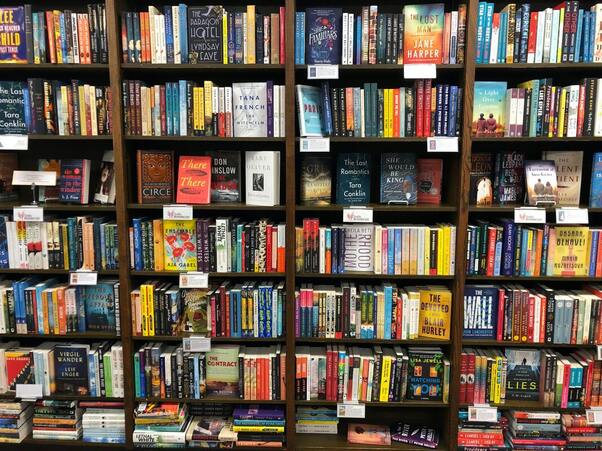|
Photo by Renee Fisher on Unsplash There is no right or wrong choice when it comes to publishing a book. Some prefer to publish with a publisher, others like myself choose to self-publish. Both roads, however, have some pros and cons, and new authors need to choose what works best for them. There is a misconception that self-published authors produce a lower value product which I do not agree with. Self-publishing can produce quality books if the authors follow all the publishing steps a traditional publisher would. In this series of blogs, I will try to highlight some differences that I have learned. We will start off talking about money. Money The first thing a new author needs to consider when selecting their path on the publishing journey is money. How much money do you have to publish? The traditional publisher knows the market and what books they would like to publish, and how many they expect to sell. These are the criteria they’ll use to determine whether they will pick your book and publish it. The publisher is taking the risk here and not the author. Once they select your book, they may or may not pay you an amount for the manuscript in advance. If they consider your book a risk, they will want to invest little, hoping the market is better than they thought it would be. Small publishers also might not have the required funds to give you an advance. Once your book is selected from hundreds of submissions, the publisher is the one who will pay for an editor, typesetter and cover designer. Once the publisher recuperates their investment in your book, that is when you will start seeing money. How much money you receive, and when, will be part of your contract with your publisher, so read it carefully. When self-publishing, especially if it is your first book, you will be navigating blindly through the genre of your book and your intended audience. You do not have the vast knowledge that a professional publisher has about what sells, why, and in what numbers. It is you who takes the risk. In order to publish quality content, you need to pay up front for your editor, typesetter and cover design before you see any money. With self-publishing, however, you cut the middleman, the publisher. Once you put your book up for sale, you see information almost in real time on how many books you’re selling and how much profit you’re receiving. Your cut per book will also be higher than what a traditional publisher usually offers. Some websites like Amazon will start paying you within three months regardless of how many books were sold. What if your book is unsuccessful? With a traditional publisher, the publisher is the one who reports the loss on the investment. As an author, you get to keep your advance and then the book dies its natural death. You may be able to get the publishing rights back and continue with the book as self-published, but this will depend on your contract. With self-publishing, it is you, the author, who invested the money. If the book doesn’t do well, you may not get your money back, but the book will still be available for sale as an eBook and as Print on Demand. Eventually, in years to come, you might still make your money back or even profit.
0 Comments
“This is War” is a single composed by Matthew Raetzel in 2017 featuring vocals by Richard Farrell. I was introduced to this song when it was suggested in my playlist as a song I might enjoy. Immediately it became one of my favorites and it is hard to listen to the lyrics and not hear in them the story of Sābanto. When Oliver arrives at the city of Riverlea as a stranger … I will leave it at that and have you, the readers, fill in the rest of the story when you have a chance to get hold of the first book of Sābanto, “The Crimson River”. I was unable to find any information about the origins of this song or the composer’s intent. Matthew Raetzel is an award-winning composer, sound designer and producer from Detroit, MI. He has written original scores for 4 feature films, over 30 short films, various television programming, gaming, and advertising projects. His work in film and TV has appeared in media outlets internationally, including Cannes, IDYLLWILD, Hollywood Black Film Festival, Syfy Channel, Superbowl 2016, National Geographic, Discovery Channel, Netflix, Amazon Prime, TV One, Filmapalooza, and more. Richard Farrell is a singer, pianist, guitarist and producer from Dublin, Ireland. His website says that he is “an intuitive, thoughtful and soulful musician, the sensitive kind.” Welcome
To the city Said a young man Sitting next to me Heard you're new in town Before you get around Here's a little tip from me Best stick to yourself No matter where you go Just watch your back And hold your own And if after that Trouble's knockin' at your door Remember my friend It's a town we're fighting for Welcome To your paradise Where the little man Pays a bigger price Take another hit Just get it over with We're a little sick you see Can't stay down no more We gotta make it known So get back up You're not alone And then hit 'em back Leave 'em grippin' to the floor You never had a choice They're knockin' at your door Remember my friend It's time And this is war It's time and this is war War Welcome To the untold Take a deep breathe Take the higher road It's what they always say As if they know the way They won't take it from me But don't ever doubt yourself 'Cause life ain't just a dream You make your own So kick and scream The people will act With a never ending force You never had the chance So whatcha' waitin' for? The day has come my friend 'Cause this is war It's time and this is war War Light another wick Better make it quick We ain't got a lot of time 'Cause the powers that be Don't want us free So they gotta dull our shine But when the dust settles in They're gonna pays for their sins I've made up my mind Gotta stand side by side As we drag all the lies To the tables for sacrifice It's time and this is war It's time and this is war War Photo by Thought Catalog on Unsplash Because of the number of stories and plots that I put in my books, I don’t believe I have experienced writer’s block. I have lots of ideas that I would like to put on the pages. If I do not know how I want to write the next scene, I can always jump to a different scene that is clearer in my mind. What I experienced in the last few weeks is what I would call writer’s fatigue. With many changes to the manuscript, I had spent on average about 90 hours a month writing, editing, or working towards publishing the first book, such as researching the cover design. That’s on top of my regular full-time job. My brain was also going over and analyzing different scenarios and improvements to the same story. Thoughts have turned to absolute mush frequently where I lost track of which version of the story I was editing. Did these two people meet already or will they meet later? Did I already reveal this piece of information? Unfortunately, stepping away from the manuscript did not help in the long run, and I quickly found myself in the same situation. How did I fight that?
What did I learn? I need to work through the process of book writing one item at a time. One of the early mistakes that I made with my book was to rush things because I thought I could easily accomplish the tasks in front of me. I set my deadlines tight, and I was ready to put in the time and effort to get things done. This left me with no room to step away and breathe, and I kept pushing myself to do more writing and editing. It also caused a lot of anxiety trying to get things done, especially when others were waiting for me. In the end, the initial publish date that I was planning to have the book ready for had to be moved because of external factors. This meant that all the stress and the unhealthy attitude towards writing were pointless. The book will proceed on its own timeline that I won’t be able to influence in its entirety. I don’t think I can get away from putting the long hours into writing because once I sit down to write and I immerse myself in the story; it is hard for me to stop. However, I can be smarter with deadlines because writing is supposed to be fun and not stressful. Writing a book is a long learning process. There is lots to discover when a writer transforms an idea in their head into structured lines of words. Writing transforms a multidimensional imaginary story into a physical two-dimensional page so a reader can recreate that multidimensional world. It takes skill to do so.
Sābanto led me down an interesting new learning path that I had not explored before, and I had lots of fun doing it. I was always an avid reader, and I could always read a book in one day if it was engaging. The story flies by fast, as you are impatient to learn more about the plot and characters. Writing is slow. It’s like comparing a turtle with a jet. Writing means crawling through a story you think you already know. I have seen a lot of advice on the internet telling writers to write a thousand words a day. If this is the initial draft, then that is simple to achieve, because the first version of the manuscript is just a brain dump. During this stage, the writer puts as much as they have already imagined in their head down onto the paper, disregarding any possible errors. Then comes editing. The endless hours spent improving the manuscript into something the writer won’t be embarrassed to show anyone. Word counts no longer matter, as sentences are re-written, information added, scenes removed, etc. Most of the learning happens here. For this phase, I had to do a lot of research on the history, psychology, technology, location (geography, fauna, flora), politics, social issues, book plot development, conflicts and arcs, timelines, flashbacks, foreshadowing, chapter and scene structures, POV implications, grammar, and punctuation. What did you learn when writing the book? Patience. I think that’s the most important lesson of book writing. Rome wasn’t built in a day. A book won’t be written in a month. I also learned that no matter what I do, the book will never be perfect. There will always be something to fix and something to update, but there will be a time when I must call it quits and publish. Did anything surprise you? I set Sābanto many years into the future because I didn’t want to tie the events in the book too closely to the present world. The fifty-year war which separates us from the time the book starts is intentional. I also needed to give the main character a way to get a hold of some fortune, and the chaos of war seemed like an excellent opportunity. Drawing a firm, identifiable line to connect current events with the world of Sābanto prevents it from being read as a documentary or prediction. While editing, it surprised me that the world of Sābanto is not that far away. It scares me how quickly our society can turn around and be in that world (war or not). Maybe we are already there, but I want the readers to be the judges of that. |



 RSS Feed
RSS Feed



